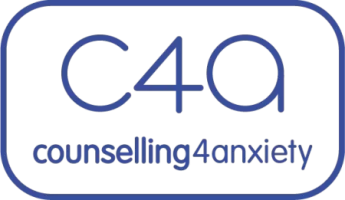Agoraphobia, often misconstrued as a fear of open spaces, is a complex anxiety disorder characterized by a fear of situations that might cause panic or a feeling of being trapped. People with agoraphobia typically avoid places or situations they believe could trigger these anxieties, leading to significant limitations in daily life. Sometimes this can include a fear of travelling on trains, planes or on the underground. So - there is a significant life limiting element to agoraphobia.
Here, I delve into agoraphobia, explore techniques to manage it, and offer self-help strategies for those affected. Agoraphobia does not have to be a life sentences of limitations on your life and there are a variety of techniques that can help. The key is to use techniques that resonate with you, help to reduce stress, make you feel more able to go through the situation or event that triggers panic and anxiety and just do it.
Understanding the Roots of Fear
Agoraphobia often develops after experiencing panic attacks in specific situations. The fear of having another panic attack becomes associated with those places, leading to avoidance. For instance, someone who has a panic attack on a bus might begin fearing all public transportation. Agoraphobia can therefore go from a fear of one situation to a more complex web of fearing other modes of travel and it is therefore essential that people with agoraphobia choose to challenge their avoidance behaviours as early as possible after a panic causing event. The longer the agoraphobia is left unchallenged, the greater the 'spread of fear' into other parts of a person's life.
Agoraphobia can also arise from a general fear of being out of control or without help. This can manifest as anxiety in crowded places, open spaces, or even being alone outside the home.
Breaking Free From Avoidance
The good news is that agoraphobia is highly treatable. Therapy, particularly cognitive-behavioral therapy (CBT), plays a crucial role and it is something that I use within my practice with clients. CBT helps identify and challenge negative thought patterns associated with feared situations. Through exposure therapy, a therapist guides the individual in gradually facing avoided situations in a safe and controlled environment. This allows for a sense of mastery and reduces the fear of panic attacks. Relaxation techniques like deep breathing and mindfulness meditation can also be helpful tools for managing anxiety.
Techniques for Supporters
As a friend, family member, or therapist, you can play a vital role in supporting someone with agoraphobia. Here are some ways to help:
- Educate Yourself: Learn about agoraphobia to better understand the challenges they face.
- Offer Patience and Empathy: Agoraphobia is not a character flaw. Be patient and supportive as they confront their fears.
- Validate Their Feelings: Acknowledge the legitimacy of their anxieties without reinforcing them.
- Encourage Professional Help: Gently suggest seeking therapy from a qualified mental health professional specializing in anxiety disorders.
- Be a Partner in Progress: Offer to accompany them on gradual exposures, starting with small, manageable situations. Celebrate their successes, no matter how small.
- Focus on Open Communication: Maintain open communication, allowing them to express their fears and concerns freely.
Taking Charge of Your Recovery
If you are struggling with agoraphobia, here are some self-help strategies you can employ:
- Educate Yourself: Knowledge is power. Learn about agoraphobia and understand the mechanisms of anxiety.
- Challenge Negative Thoughts: Identify and challenge negative thought patterns that fuel your anxieties.
- Practice Relaxation Techniques: Regularly practicing relaxation techniques like deep breathing and mindfulness meditation can equip you with tools to manage anxiety in the moment.
- Develop a Support System: Seek support from friends, family, or therapy groups.
- Set Realistic Goals: Start with small, achievable goals for exposure and gradually increase the difficulty as you gain confidence.
- Reward Yourself: Celebrate your achievements, no matter how small. This positive reinforcement strengthens your progress.
- Be Patient: Recovery takes time and effort. Be patient with yourself and celebrate every step forward.
Remember, agoraphobia doesn't have to control your life. With the right support system, therapy, and self-help strategies, you can reclaim your freedom from anxiety and live a fulfilling life.

